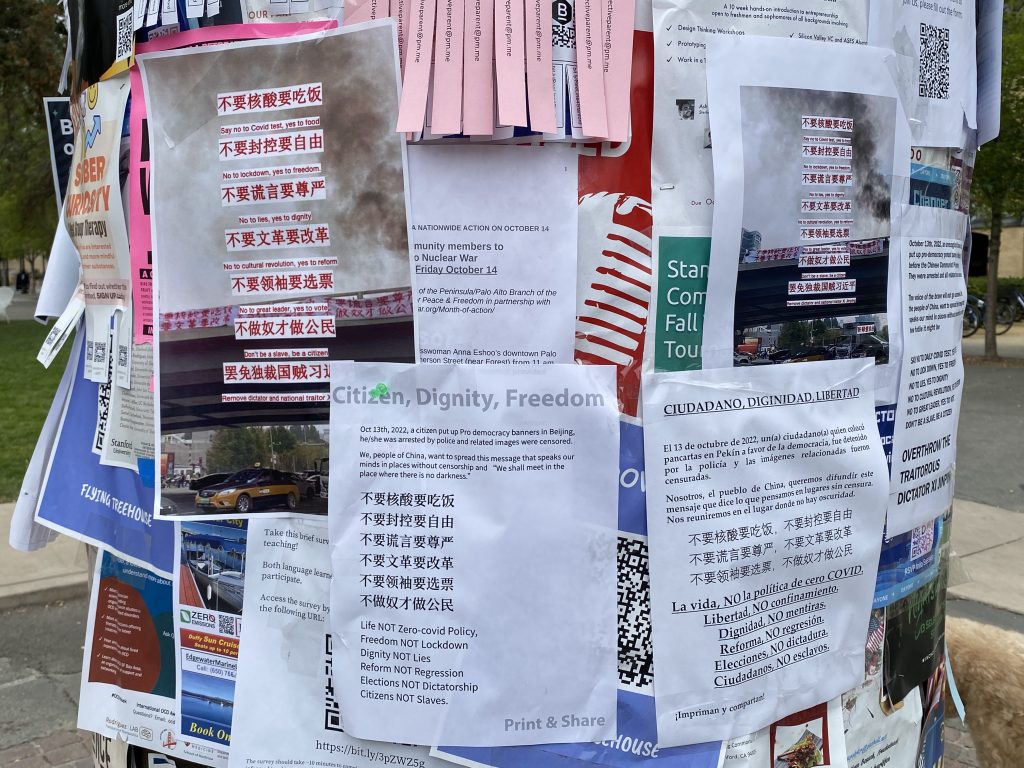Beijing
1 Politics
Anonymous 1
Politics of Beijing
In contemporary China, Beijing is at the heart of Chinese politics. For instance, the National Party Congress is hosted every five years within Beijing. Moreover, the leader of the Chinese Community Party (CCP) lives in Beijing as well. This makes Beijing the heart of all decisions, but also an area where many actions are taken due to the symbolic and iconic nature as the heart of China’s politics.
In this section, the significance of Tiananmen Square will be discussed, as well as some notable political protests that took place in Beijing. Moreover, the protests that take place in Beijing are seen as much more defiant due to the proximity to the political heart of China. However, it is also this centricity that gives these protests much more potential for change. Hence, they seem to be more significant when they do occur.
The Significance of Tiananmen Square
Tiananmen Square, while more widely known outside China for the protests that took place there, is very notable in its own right. In fact, it was at Tiananmen Square where The People’s Republic of China (PRC) was established. Because of this, it is seen as core to the identity of Chinese politics. Today a very large mural of the PRC’s first leader, Mao Zedong, is very visible and iconic at this location.
Notable Protests in Beijing
Tiananmen Square Massacre – June 4th, 1989
Without a doubt, Tiananmen square is the most notable protest to ever occur in Beijing, as the world watched history be made. During this incident, the People’s Liberation Army (PLA), was ordered to attack a group of protesting students in Tiananmen Square. These students were protesting for freedom and democracy. The show of force in the Tiananmen Square Massacre was telling of what the future of the party was to hold.
The world watched live coverage of the students protesting, and then that of the crackdown. BBC estimates that the death toll from the event was 10,000, but due to the nature of the incident, there are no accurate figures (“Tiananmen Square Protest…”). Below is a video by BBC which breaks down some of the events of the Tiananmen Square Massacre from the front lines.
Today, the Tiananmen Square Massacre still remains a highly sensitive and censored incident. For instance, even phrases as simple as “8964” a reference to 89/6/4, the date of the incident are censored (Kuek Ser). Moreover, even less direct phrases such as “8的平方”, or the square root of 8, which is 64, are censored (Kuek Ser). Of course, such censorship increases as the date of the event nears, CNN reports that Chinese netizens refer to it as “internet maintenance day” (Griffiths).
Sitong Bridge Protest – October 13th, 2022
Ahead of the 20th Party Congress, where Xi Jinping was expected to receive a third term, the spirit of protest was in the air in Beijing once again. One brave individual placed a banner in Beijing. BBC reports that after the man placed the banner, he used a loudspeaker to shout: “Go on strike at school and work, remove dictator and national traitor Xi Jinping! We want to eat, we want freedom, we want to vote!” (Wong). The timing of this protest was no coincidence. The phrases on the banner were no less provocative. They read:
不要核酸要吃饭 不要封控要自由 不要谎言要尊严
不要文革要改革 不要领袖要选票 不做奴才做公民
translated into English, this reads:
We don’t want nucleic acid testing, we want food to eat;
We don’t want lockdowns, we want freedom;
We don’t want lies, we want dignity;
We don’t want Cultural Revolution, we want reform;
We don’t want [dictatorial] leaders, we want elections;
We don’t want to be slaves, we want to be citizens.
This translation comes from language log, a blog from the University of Pennsylvania, with the poster being Victor Mair. The true significance of this banner lies not only in its provocative messaging, but its location and timing. In a state where it is clear to understand you are being censored, actions of free speech require both bravery and sacrifice. These posters later spread onto university campuses throughout the world. The following image is a group of posters put up at Stanford University:

Citations
All Things Old. “Mao Zedong Full Speech Restored (1949) [English Subtitles] Proclamation of the PRC.” YouTube, 19 Aug. 2022, www.youtube.com/watch?v=YaRV_AiWxao.
BBC News. “Tiananmen Square Protest Death Toll ‘was 10,000.’” BBC News, 23 Dec. 2017, www.bbc.com/news/world-asia-china-42465516.
BBC News. “Archive: Chinese Troops Fire on Protesters in Tiananmen Square – BBC News.” YouTube, 4 June 2014, www.youtube.com/watch?v=kMKvxJ-Js3A.
Griffiths, James. “World Marks 30 Years Since Tiananmen Massacre as China Censors All Mention.” CNN, 4 June 2019, edition.cnn.com/2019/06/03/asia/tiananmen-june-4-china-censorship-intl/index.html.
Kuek Ser, Kuang Keng. “How China Has Censored Words Relating to the Tiananmen Square Anniversary.” TheWorld, 4 June 2016, theworld.org/stories/2016-06-03/how-china-has-censored-words-relating-tiananmen-square-anniversary. Accessed 3 Dec. 2022.
Mair, Victor, and Victor Mair. Language Log » Translation Strategies: Open Protest at Sitong (Four-Way) Bridge. languagelog.ldc.upenn.edu/nll/?p=56731.
Wong, By Tessa. “China Congress: How One Man on a Bridge Marred Xi Jinping’s Big Moment.” BBC News, 22 Oct. 2022, www.bbc.com/news/world-asia-china-63339816.
Media Attributions
- Anti_Xi_Jinping_slogans_in_Stanford_University_-_3 © Suiren2022 is licensed under a CC BY-SA (Attribution ShareAlike) license

